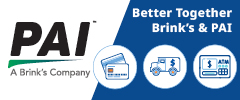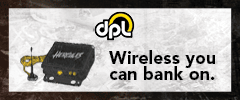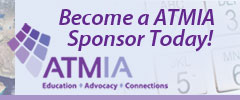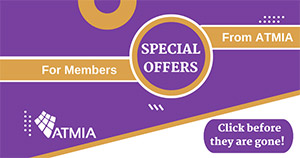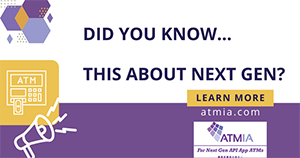
ICA References on Cash & Pandemic
Monday, March 30, 2020
The ICA is concerned by the rise of misinformation regarding the use of banknotes and coins as the effects of the Coronavirus (COVID-19) pandemic. The ICA would therefore like to refer to the following statements and references from medical and cash experts.
- The World Health Organization (WHO) is neither advising nor discouraging the public to avoid cash payments, but encourages frequent hand washing and adhering to basic hygiene.
- “We did NOT say that cash was transmitting coronavirus. […] We were misrepresented. […] Asked if we thought banknotes could transmit COVID-19 and we said you should wash your hands after handling money, especially if handling or eating food,” Fadela Chaib, spokesperson, WHO (as quoted by MarketWatch) [1]
- "The virus will not survive for very long on surfaces, particularly on a dry surface like a banknote," Stephanie Brickman, senior communications consultant, WHO (as quoted by euronews)[2]
- Most transmission of the virus that causes the COVID-19 is through person-to-person contact and not from touching objects. Furthermore, there is no evidence that banknotes are more strongly contaminated than any other surfaces, objects and other payment methods, used in everyday life, as stressed by several central banks and medical experts.
- "Virus transmission through banknotes has no particular significance", Robert Koch Institute, Germany[3]
- “The risks posed from handling Canadian bank notes are no greater than those posed by touching other common surfaces such as doorknobs, kitchen counters and handrails. Canadians handling cash should follow the public health guidelines on COVID-19 and wash their hands as they would do for other activities,” Bank of Canada[4]
- “The probability of becoming ill from handling cash is smaller than from many other objects used in everyday life. […] “Banknotes and coins do not pose a particular risk of infection for the public,” Johannes Beermann, Executive Board Member, Bundesbank
- “There is nothing to indicate that there is a risk of being infected by the coronavirus via banknotes and coins. The corona virus that causes covid-19 is primarily spread from coughing and sneezing or via close contact with someone already infected,” Sveriges Riksbank[5]
- “As with normal seasonal influenza respiratory droplets of a person infected with a virus could survive for a limited period on a banknote, like on any other object. The probability of contagion with a virus via a banknote is, however, very low in comparison with other surfaces (e.g. door handles, hand rails, light switches, shopping baskets, payment terminals). The basic protective measures against the new coronavirus should be applied as recommended by the World Health Organisation including washing your hands frequently,” Central Bank of Luxembourg[6]
- “Cash is just one of a number of frequently touched surfaces we encounter. The same is true for any other payment device whether it’s a card, phone or watch. This reinforces the need for good hand hygiene regardless of the way you pay or accept payment,” said Christian Hawkesby, Assistant Governor, Reserve Bank of New Zealand[7]
- The risk of picking up coronavirus via cash is extremely minimal and to single out banknotes is random. The rise of misinformation regarding the use of banknotes and coins risks undermining financial inclusion and access to goods, as well as potentially exposing the public to increase in fraud risk.
- “During this time of heightened public health measures intended to limit the transmission of COVID-19, some consumers and businesses are choosing not to use cash to limit potential exposure. Refusing cash could put an undue burden on people who depend on cash as a means of payment. The Bank strongly advocates that retailers continue to accept cash to ensure Canadians can have access to the goods and services they need,” Bank of Canada[8]
- “Cash is the preferred form of payment for about 10% of Finns. For these people, cash may be the only possible payment method and it is important that they get their purchase done. Cash can be used as usual during a coronary pandemic. However, the most important thing is careful hand hygiene, regardless of the payment method,” Päivi Heikkinen, Head of the Payment Systems Department, Bank of Finland[9]
- “The South African Reserve Bank (SARB) has been made aware of fake news that involve a scam claiming that it is “recalling” money from the public. It is believed that criminal elements are visiting the homes of members of the public telling them to hand over banknotes in their possession because the banknotes have been contaminated with the Corona virus. […] The SARB has neither withdrawn any banknotes or coins nor issued any instruction to hand in banknotes or coins that may be contaminated with the COVID-19 virus,” South African Reserve Bank[10]
- The Austrian National Bank has published the statement with the title ‘No heightened risk of infection from Cash’, noting that the probability of infection from cash is even lower than from other objects. 5- and 10-euro banknotes are in addition protected by an additional coating. [11]
[1] MarketWatch: “World Health Organization: ‘We did NOT say that cash was transmitting coronavirus’” (9 March 2020) (https://www.marketwatch.com/story/who-we-did-not-say-that-cash-was-transmitting-coronavirus-2020-03-06)
[2] Euronews:” Experts play down likelihood of banknotes spreading coronavirus” (6 March 2020) (https://www.euronews.com/2020/03/06/experts-play-down-likelihood-of-banknotes-spreading-coronavirus)
[3] Reuters: “Banknotes carry no particular coronavirus risk: German disease expert” (11 March 2020)
[4] Bank of Canada: “Bank of Canada asks retailers to continue accepting cash” (18 March 2020) (https://www.bankofcanada.ca/2020/03/bank-canada-asks-retailers-continue-accepting-cash/)
[5] Sveriges Riksbank: “No evidence that the coronavirus spreads via banknotes” (26 March 2020) (https://www.riksbank.se/en-gb/press-and-published/notices-and-press-releases/notices/2020/the-coronavirus-is-not-spread-via-banknotes-and-coins/)
[6] Central Bank of Luxembourg: “POSSIBLE IMPACT OF EURO BANKNOTES ON THE SPREAD OF THE CORONAVIRUS” (17 March 2020) (http://www.bcl.lu/en/Media-and-News/Press-releases/2020/03/coronavirus/index.html)
[7] Reserve Bank of New Zealand: “Cash and other payments systems ready for COVID-19” (19 March 2020) (https://www.rbnz.govt.nz/news/2020/03/cash-and-other-payments-systems-ready-for-covid-19)
[8] Bank of Canada: “Bank of Canada asks retailers to continue accepting cash” (18 March 2020) (https://www.bankofcanada.ca/2020/03/bank-canada-asks-retailers-continue-accepting-cash/)
[9] Bank of Finland Blog: “Käteisen käytöstä koronapandemian aikana [Use of cash during Corona pandemic]” (25 March 2020) (https://www.eurojatalous.fi/fi/blogit/2020/kateisen-kaytosta-koronapandemian-aikana/)
[10] South African Reserve Bank:” The SARB warns the public that it is NOT withdrawing banknotes and coin because of COVID-19” (https://www.resbank.co.za/Lists/News%20and%20Publications/Attachments/9779/The%20SARB%20warns%20the%20public%20that%20it%20is%20NOT%20withdrawing%20banknotes%20and%20coin%20because%20of%20COVID-19.pdf)


